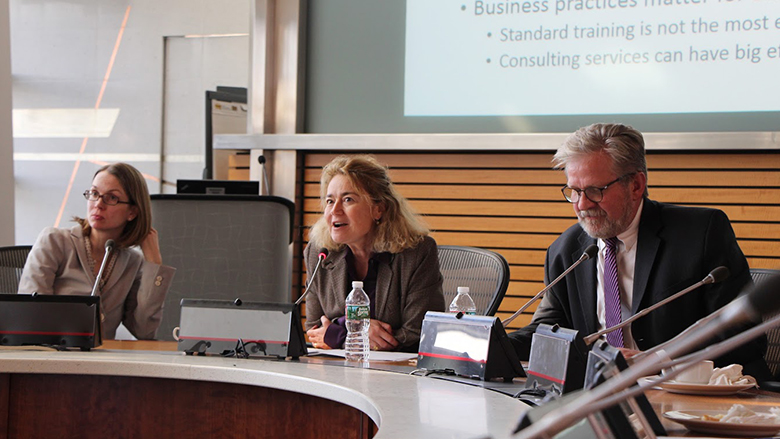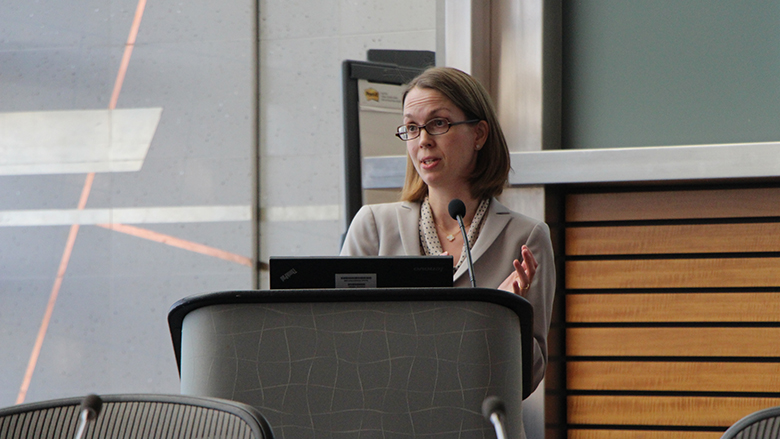Small and medium-sized enterprises (SMEs) are, by definition, modest in size. But they play an outsized role in developing economies, where they account for about half of employment and the majority of jobs created. Often, they are not as productive as large firms, so measures that reduce this productivity gap and boost SME growth could translate directly into higher earnings for low-income households.
This is why the World Bank and its partners have supported a range of programs—from speeding up business registration to putting in place collateral registries—to help SMEs. But until recently, the evidence was thin on what works and what doesn’t. However, a body of new research from Mexico, Georgia, Bosnia, and elsewhere is transforming the way that development partners support SMEs. Earlier this month the World Bank organized a Policy Research Talk to share many of the latest findings.
“SMEs face greater constraints to growth than larger firms, whether these are access to finance, regulation, or corruption,” said Asli Demirguc-Kunt, Director of Research at the World Bank. “Since we are interested not only in creating more but higher-quality jobs, we are very interested in policies that promote SMEs.”
Miriam Bruhn, a Senior Economist at the World Bank, compared approaches to promote SMEs in three areas where research is providing new insight: regulatory reform, access to finance, and business practices.
“Where will money spent on SME programs give the greatest bang for the buck?” Bruhn said. “That is where we want to focus our efforts.”
In the area of regulation, governments have devoted their greatest attention to streamlining business registration. The Doing Business report recorded an average of 46 reforms per year over the last five years in this area. The rationale is that informal firms, which are overwhelmingly small, will formalize and potentially grow once barriers to entry are removed.



